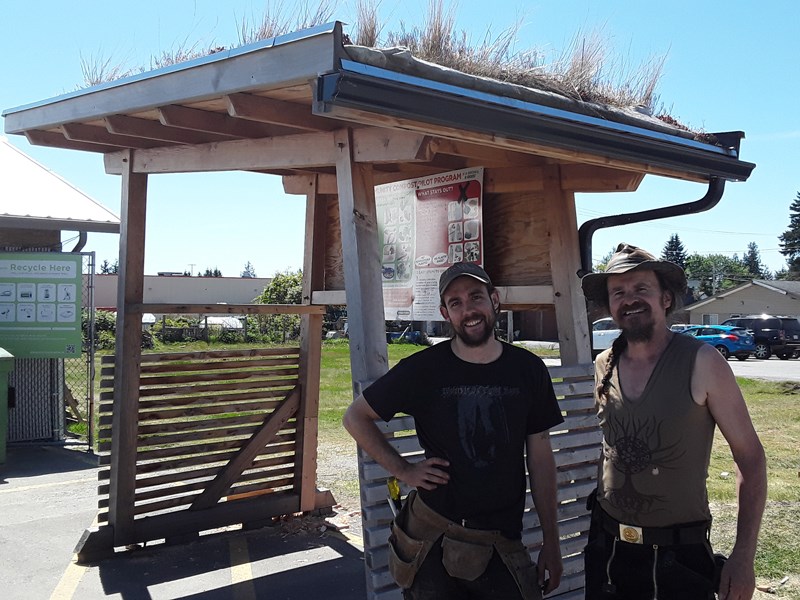By now, most of us know going green involves getting our kitchen scraps out of the landfill, but just how much of an impact does it have if we, say, focus on other ways to reduce our waste instead?
It turns out that 40 per cent of our garbage is, in fact, made up of compostable materials that could be turned into a nutrient-rich soil amendment, while saving us money at the curb or transfer station. So it literally pays to make the trip to our backyard composter or the two free drop-off locations in Powell River.
If you are collecting for the first time, avoid the temptation of buying compostable plastic bags, as these are not permitted in the program because they lead to plastic contamination. Instead, grab a sealable container from your recycling bin or ask staff at the depot to put one aside for you. Line it with newspaper or paper towels to absorb the juicy goods that are a part of composting. This will make the drop off to your backyard composter or the depot quick and neat.
After having a run-in with a motorized vehicle, Town Centre Recycling Depot’s compost shelter is back in shade-making shape. While qathet Regional District’s compost drop-off service never stopped, it has now resumed its comfy spot under the locally milled timber-frame and green-roofed structure constructed by Carsten Huber.
Depot staff are available to assist with drop offs and questions about what goes in and what stays out. The list of accepted materials is very extensive, including some surprising items such as meat, bones, fish, soft shellfish, dairy products, food-soiled paper and cardboard, paper coffee filters, and wooden utensils, skewers and toothpicks.
Yard waste is also welcomed, although invasive species are not. These you can save for the occasional regional district roundups, or take them to Augusta Recyclers, where you pay a minimal fee for disposal.
Sending compostable materials to the landfill is harmful to the planet because, contrary to popular belief, nothing breaks down there. Space is at a premium in landfills, so materials are compacted, leaving no oxygen to feed eco-friendly microorganisms that would break them down into food for the soil.
Instead, compostable materials buried in this environment release methane gas, at least 25 times more harmful a greenhouse gas than carbon dioxide. Beyond this environmental cost, there is the transportation of the waste to our nearest available landfill, which for Powell River is in Rabanco, Washington.
That’s right, our garbage travels by truck, barge, and finally train across the border before its entombment. So it pays to think before you throw.
Let’s Talk Trash is qathet Regional District’s waste-reduction education program.



